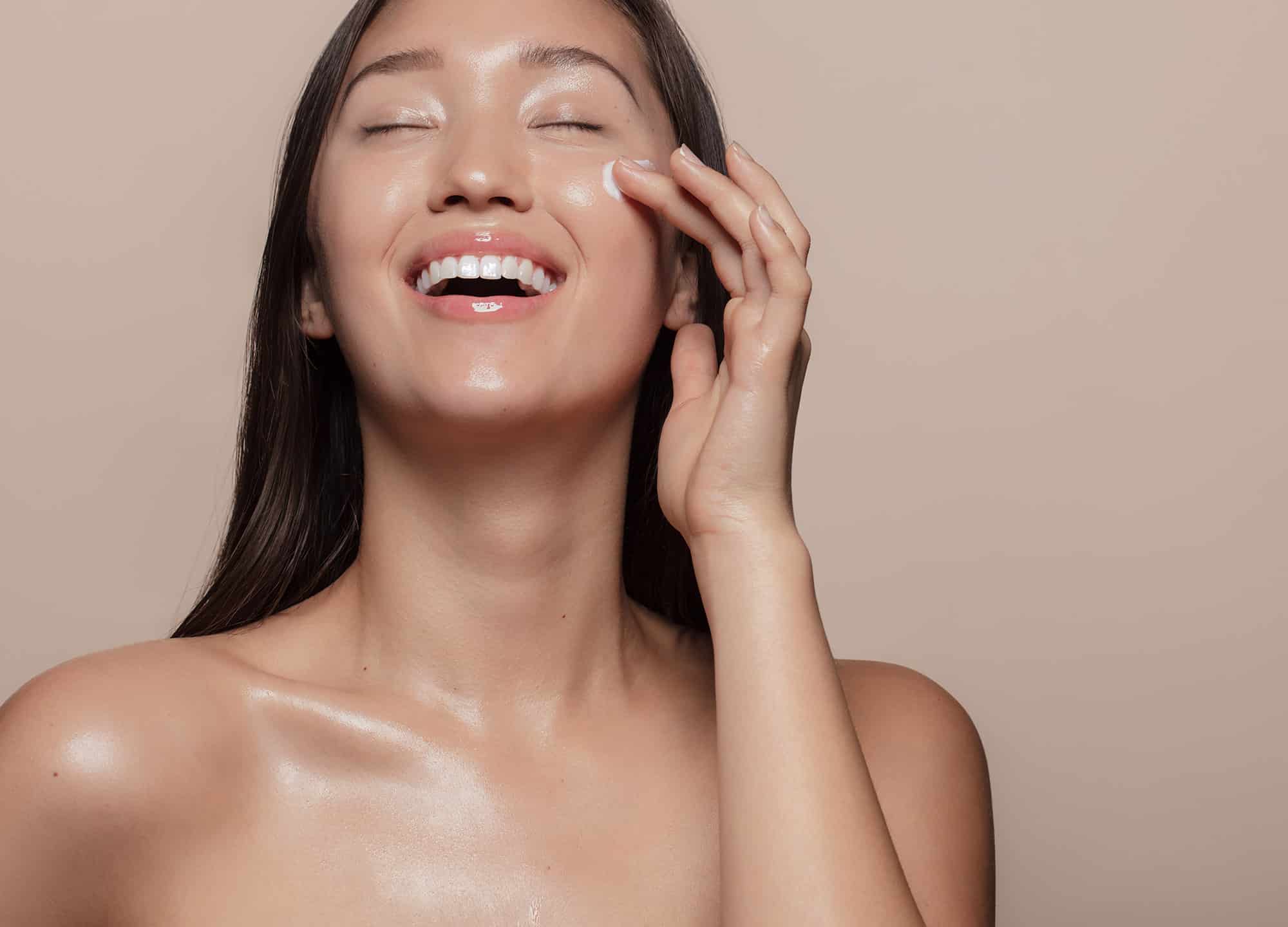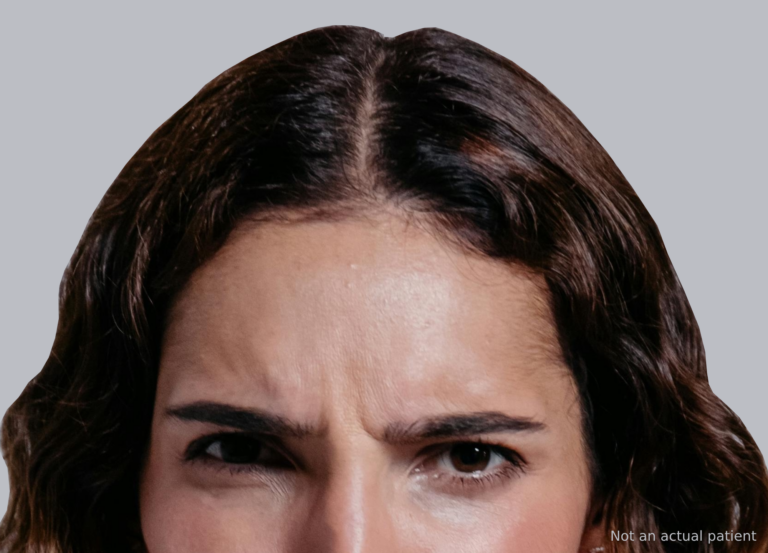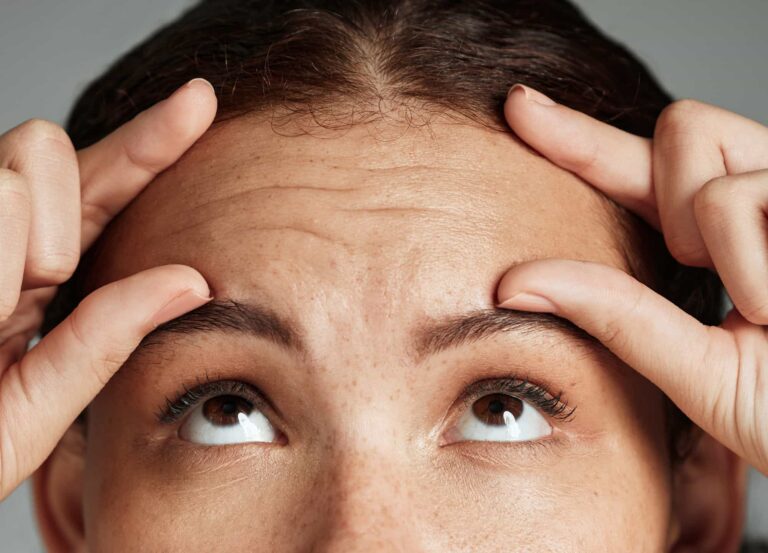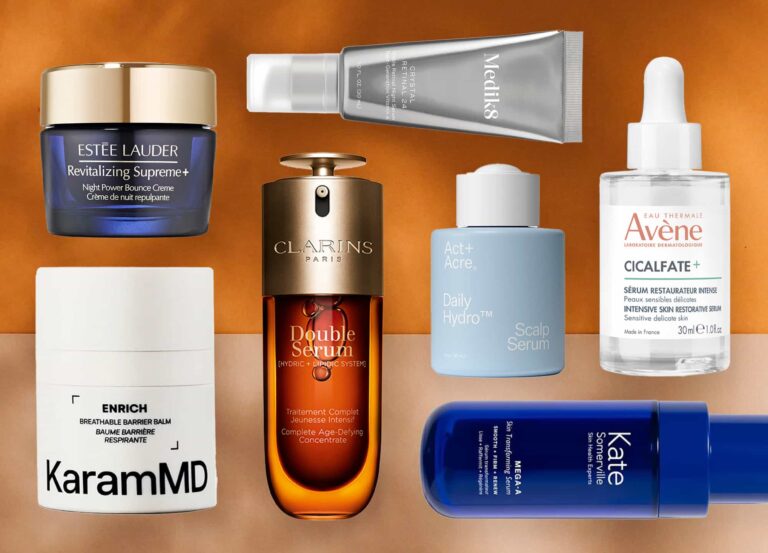If you’ve heard about the “skin-saving, life-changing” benefits of retinol and vitamin C but don’t quite know what they are or what the difference is between the two, you’re not alone. They’re both buzzy (and, we might add, legit) skin-care ingredients that offer many anti-aging benefits, but the science behind how each works is different.
What is retinol, and what does it do?
In your skin-care routine research, you may have come across words like retinol, retinoid, and Retin-A. They all sound similar, which can lead to confusion.
“‘Retinoid’ is a generic, umbrella term for any topical product that contains a vitamin A derivative,” explains New York City board-certified dermatologist Dr. Shari Marchbein. They can be available either over the counter, in skin-care products, or via prescription, from your doctor. Prescription retinoids include tretinoin (the key ingredient in Retin-A and Renova) and tazarotene.
The most common over-the-counter retinoids that you find in creams and serums are retinol and retinyl palmitate, “with retinol being stronger and more effective than retinyl palmitate,” says Dr. Marchbein.
For the purposes of this article, we’re focusing on retinol.
Overall, retinol helps to unclog pores; stimulate collagen production, reduce fine lines; increase skin cell turnover, smooth the skin; and even out pigmentation and discoloration. “I believe that [retinol] has gotten very popular because, out of all the topical anti-aging ingredients out there, retinol is second only to sunscreen in its tried-and-true ability to combat skin aging—it’s been around for decades now, and we have lots of data to demonstrate its efficacy,” says New York City board-certified dermatologist Dr. Hadley King.
Unlike vitamin C (more on that later), retinols “are also very helpful in treating acne, especially comedonal acne [i.e., blackheads and whiteheads],” says New York City board-certified dermatologist Dr. Jody Levine. “Vitamin C is healthy for the skin … [but] isn’t as effective in collagen synthesis and antiaging as retinol is.”
Related: Retinol: The Skincare Ingredient Your Future Self Needs Now
What is vitamin C, and what does it do?
Vitamin C, also known as ascorbic acid, is an antioxidant that works to neutralize free radicals (pollution, smoke, UV rays) that can break down the collagen in your skin, causing more visible signs of aging. “In general, a vitamin C serum helps to protect the skin from the effects of UV rays [but it is not a sunblock and should always be paired with an SPF of at least 30], reduce the appearance of sunspots and discoloration, refine skin texture and skin tone, reduce wrinkle formation, and lessen the appearance of existing wrinkles,” says Dr. Levine.
Vitamin C has been proven to help reduce UV damage, but you might not want to cast it aside when the sun starts to fade and temperatures start to drop. “Vitamin C also appears to benefit dry skin and support wound healing, but further research is needed,” says Dr. King.
When should you apply each?
Since vitamin C helps protect skin from the harmful effects of UV rays and free radicals, it’s advised to apply it to your skin after cleanser in the morning. Retinol, on the other hand, can increase your skin’s sensitivity to the sun, so dermatologists recommend applying retinol at night. However, “it’s fine to use them at the same time, unless you have sensitive skin and the two together increase irritation,” says Dr. Levine.
Dr. King notes that there have been some concerns that the acidic pH needed for vitamin C absorption contributes to the degradation of retinol, but more research is needed. At least one study has shown that retinol did maintain its effect when paired with vitamin C, and other “studies have shown that combining retinol with vitamin C or another antioxidant may help stabilize it,” she says.
Related: Hyperpigmentation: How 5 Skin Experts Treat Their Own Sun-Related Skin Damage
What should you look for in a retinol and vitamin C product?
When on the hunt for a retinol, look for a formulation that also contains moisturizers, to counteract the dryness that the ingredient can typically cause. “Because retinol can be drying, products with encapsulated retinol help minimize irritation by delivering the retinol to the skin gradually, over a period of time,” says Dr. Marchbein.
When applying a retinol serum or product, Dr. Marchbein recommends the “sandwich technique”: after washing your face, apply a layer of hydrating cream and then apply a pea-size amount of retinol, followed by one last layer of moisturizer on top. “Studies have shown that this base layer of moisturizer does not dilute or reduce the efficacy of the retinol and helps with tolerability,” says Dr. Marchbein. Dr. Levine recommends choosing retinol products that actually list retinol, not a retinol derivative, as the main active ingredient. “For even greater efficacy, use a prescription retinoid,” she says. Dr. Levine recommends any tretinoin at 0.025%, such as Obagi Tretinoin Cream 0.025%.
You can find a powerful vitamin C serum over the counter, but actually keeping it stable for a longer period of time might prove more difficult. “The stability of vitamin C in solution has been a concern, because exposure to air, heat and light may slowly degrade the vitamin,” explains Dr. King. “The stability [of vitamin C] may be increased by adding other antioxidants (like ferulic acid), so look for ascorbic acid, combined with other antioxidants, and packaging that protects the solution from air and light.” Think: dark-glass bottles, ampoules that help maintain the integrity of the formula or vials that close tightly. One tried-and-true favorite that fits the above criteria? SkinCeuticals CE Ferulic ($166).











